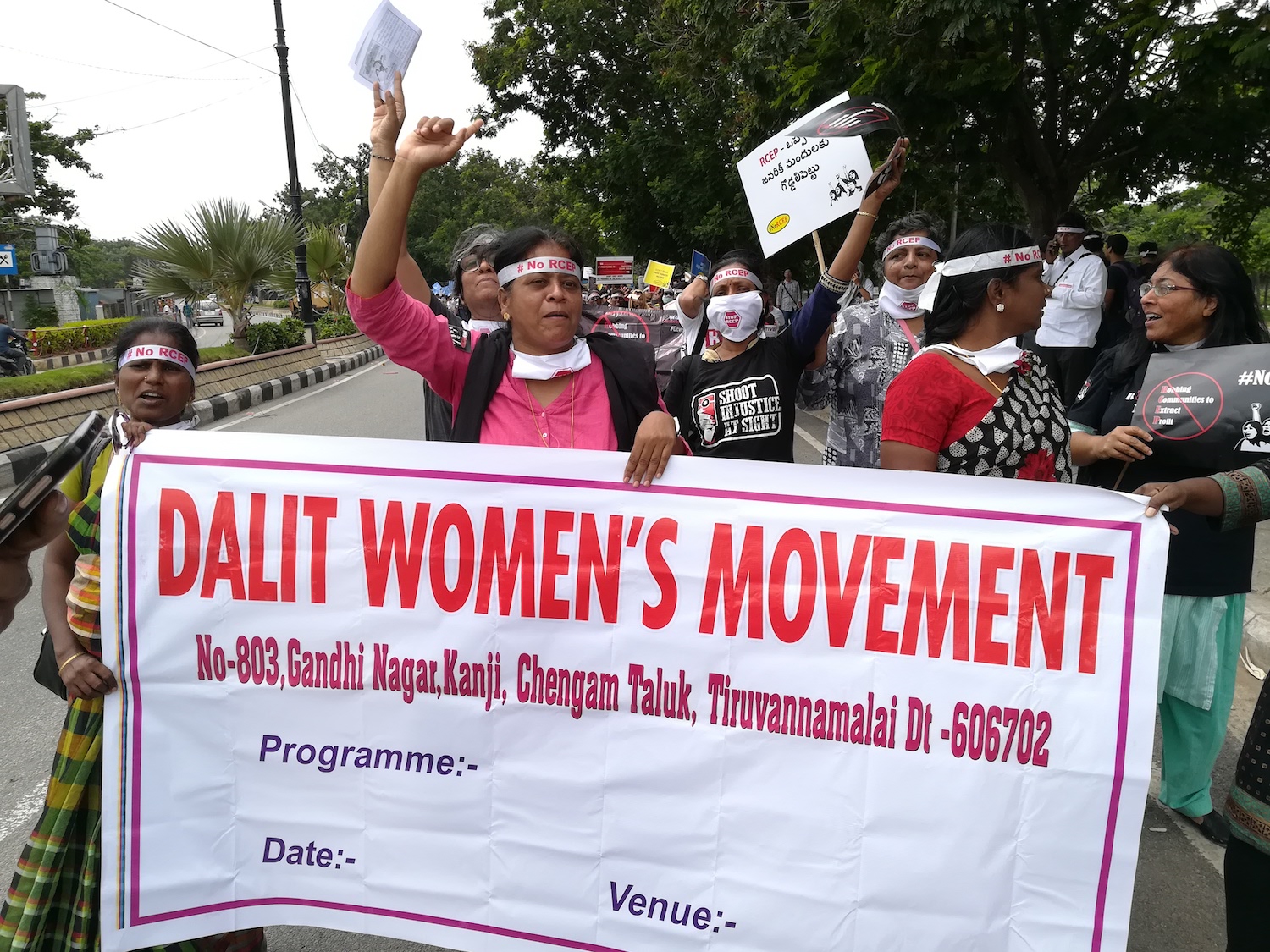The Regional Comprehensive Economic Partnership (RCEP) trade agreement will adversely impact women’s human rights in many different aspects - control over land and resources, labour rights, access to public services and affirmative action.
Women make up the majority of subsistence farmers but are continually denied control and access over land and resources. One of the provisions proposed in RCEP will allow governments to treat foreign investors as they treat locals. This means that large corporations will be able to grab land, displacing local subsistence farmers, especially women, who usually does not have any documentations over their land. It will also require women who are the majority of the small scale, subsistence farmers to compete with large agro-corporations. The intellectual property rights chapter will criminalize seed sharing amongst farmers, and will see more thefts of women’s seeds and local knowledge as already seen in several RCEP countries. Women who depend on sharing seeds and other inputs with each other will be forced off their farms and lose their control over land and resources, impacting on their family’s and community’s food sovereignty.
Women rely more heavily on public benefits and services than men do. Any cuts in public services will see women compensating for it through their unpaid care work, while the introduction of any fees on public services will be most likely paid out of the pockets of women as the primary caregiver in their family. RCEP will push for the privatization of many of these services, hampering women’s access to them. The reduction of tariffs, for instance, will severely affect public revenue and as a result, public expenditures as well. RCEP may also introduce new intellectual property laws that will grant pharmaceutical companies unrestrained privileges and ownership over medicine, decreasing access to affordable medication for many people. Women usually sacrifice their own access to medicine and healthcare in order to provide for their family.
Corporations operating in the global value chain have relied on the devaluation of women’s work and wages to make profit. A trade agreement like RCEP is designed to facilitate greater market competition and cheap labour in signatory countries. It is a race to the bottom with women at the bottom. Women workers will be more vulnerable to labour rights violations and the pushing down of their wages. Any changes in wages and working conditions could lead to multinational corporations using the Investor State Dispute Settlement (ISDS) mechanism to sue governments in secret tribunals if they pass laws that may infringe corporations’ profit-making processes.
This could prevent governments from implementing Affirmative Action, a policy recognized under numerous international human rights treaties and conventions, including the Convention on the Elimination of Discrimination Against Women (CEDAW), that requires governments to implement policies and actions to redress the discrimination experienced by anyone including but not limited to women. Corporations have used the ISDS mechanism in the past to sue governments whose Affirmative Action policy interferes with their profits. Another threat comes from the agreement to negotiate a chapter on ‘Government Procurement’. That chapter could mean that all government procurements, apart from defence, must treat foreign investors equally and are therefore prevented from preferencing local industries. This means that incentives exclusively designed by governments to benefit women, such as lower land taxes for women landowners, or to procure certain items from local women can be prohibited unless they are also extended to foreign investors.
Contributed by Diyana Yahaya, Programme Officer, APWLD (April 2018)

























